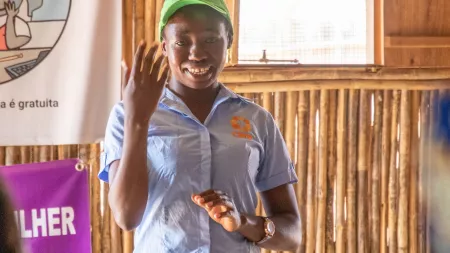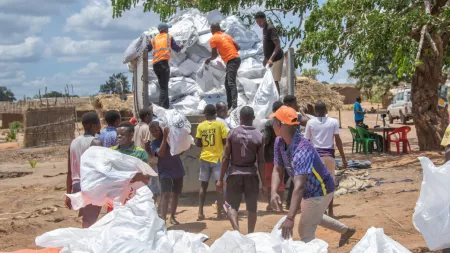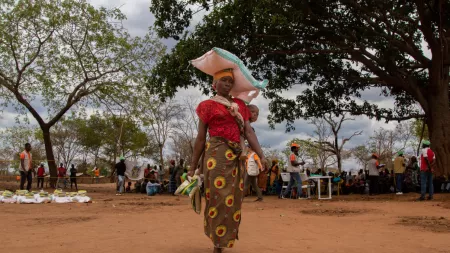Cabo Delgado, a province in northern Mozambique, has been plagued by armed conflict since October 2017. This has resulted in the displacement of over a million people, who have experienced severe hardship, as they were forced to flee their homes as a result of insurgent activity. Women and girls bore the brunt of this humanitarian emergency, with their rights, safety, and future prospects gravely affected.
“The humanitarian situation in Cabo Delgado, while significantly improved, continues to impact the lives of women and children who lost access to education, healthcare, and economic opportunities and faced increased risks of violence,” said Christine Beasley, CARE International Mozambique Country Director.

Most of the people who fled violence in northern districts settled temporarily in host communities or displacement camps in the southern part of the province. A CARE Gender Report found that post-traumatic stress, economic hardship, repeated displacement, and uncertainty about the future all have contributed to an increased risk of intimate partner violence for women. According to the latest Humanitarian Response Plan, which is only 35.2% funded, protection and education programs are the least funded sectors, at 18.7% and 13.6% respectively.
Community members still carry the psychological trauma of the violence they experienced and witnessed as they fled from their homes. Amina, who lives in one of the 99 displacement sites, shared her account of what she saw the day the conflict started: “When the combatants entered our village, they burned houses, killed people, and kidnapped others, including my two daughters.” Sadly, her experience is not uncommon, as many need ongoing support to recover and rebuild their lives after severe trauma.

“This year, CARE has been working in Quissanga, Ancuabe, Montepuez, Metuge, Mueda and Memba districts. We have reached close to 400,000 people with shelter, hygiene kits for women, water points for the displaced as well as host communities, and hygiene training. CARE views this as both a humanitarian imperative and a moral obligation to protect the rights and well-being of the most vulnerable members of society. We need to continue showing up for the people of Cabo Delgado,” said Christine Beasley.
Since the start of the conflict, CARE, alongside several partners, including the European Union, Irish Aid, and ShelterBox, has been assisting the Government of Mozambique in meeting the needs of displaced people in Cabo Delgado.
CARE's work in Mozambique
CARE began its work in Mozambique in 1984 delivering emergency and large-scale humanitarian assistance to communities affected by the protracted civil war. CARE provided people across the country with regular food assistance, as a great many Mozambicans were displaced and had no source of food or income.
Since the end of the war in 1992, CARE has been providing assistance in health, water and sanitation. We also work with communities to develop their agricultural skills and improve their income generation.
As part of our longstanding focus on emergency response, we regularly respond to drought and other natural disasters and assist communities in developing disaster risk reduction strategies and methods to cope with climate change.
Within the last 12 months, CARE Mozambique and its partners have:
-
Provided shelter kits to 315,000 people, as well as improved housing for 4,125 people.
-
Constructed 10 new water points and rehabilitated 20 more, providing 9,000 people with access to clean water.
-
Distributed hygiene kits to more than 55,000 people
-
Reached over 32,000 with hygiene promotion activities.
-
Established women and girl-friendly safe spaces where they can meet and be free from harm and harassment while providing training and mentoring to selected community members to provide GBV prevention and response services.
